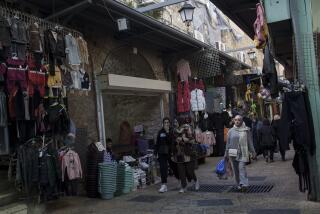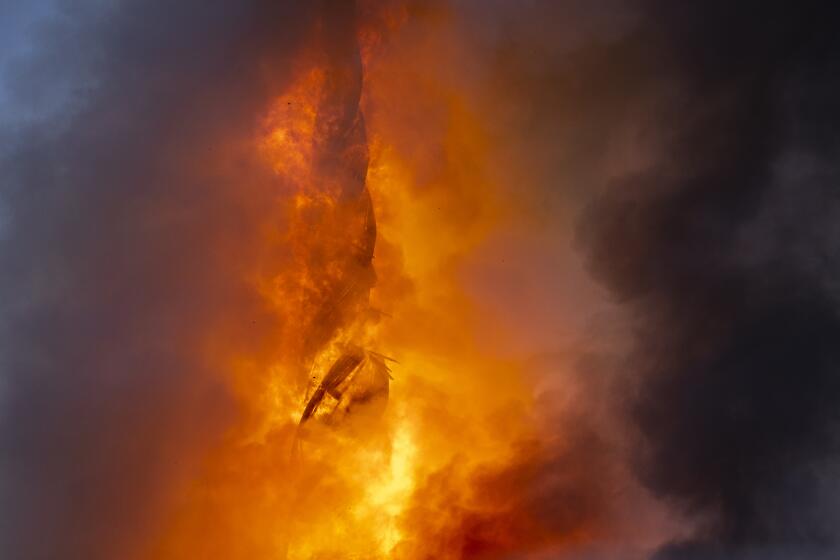Midnight in Tripoli brings kebab stands and picnics, but the enemy is at the gates

In this video, it’s been 49 days since Field Marshal Khalifa Haftar and his self-styled Libyan National Army launched an all-out offensive to retake the Libyan capital Tripoli.
It’s Ramadan in Tripoli, and come midnight the streets around the Kabir public garden are a melee of bumper-to-bumper traffic. In the park, families hold post-fasting picnics, as teenagers roam in energetic clumps amid a panoply of kebab stands, gelato trucks and inflatable bounce houses.
Occasionally, a loud thud overpowers the dance-beat thumping from speakers (“That’s a Grad rocket,” says one passerby, cocking a discerning ear to the sky); it’s one of the few signs in downtown Tripoli that the enemy is at the gates.
That enemy, in the eyes of many here, is renegade Gen. Khalifa Haftar, who seeks to rule Libya via his self-declared Libyan National Army.
For years, the aspiring strongman (not to mention naturalized U.S. citizen and former CIA asset) has vowed to conquer Tripoli, a city with more than 2.5 million people and the seat of the United Nations-recognized — though largely powerless — Government of National Accord, or GNA.
A deal reached in February with the GNA’s head, Prime Minister Fayez Serraj, would have installed Haftar as chief of staff of a reconstituted Libyan army after the selection of a new government later this year.
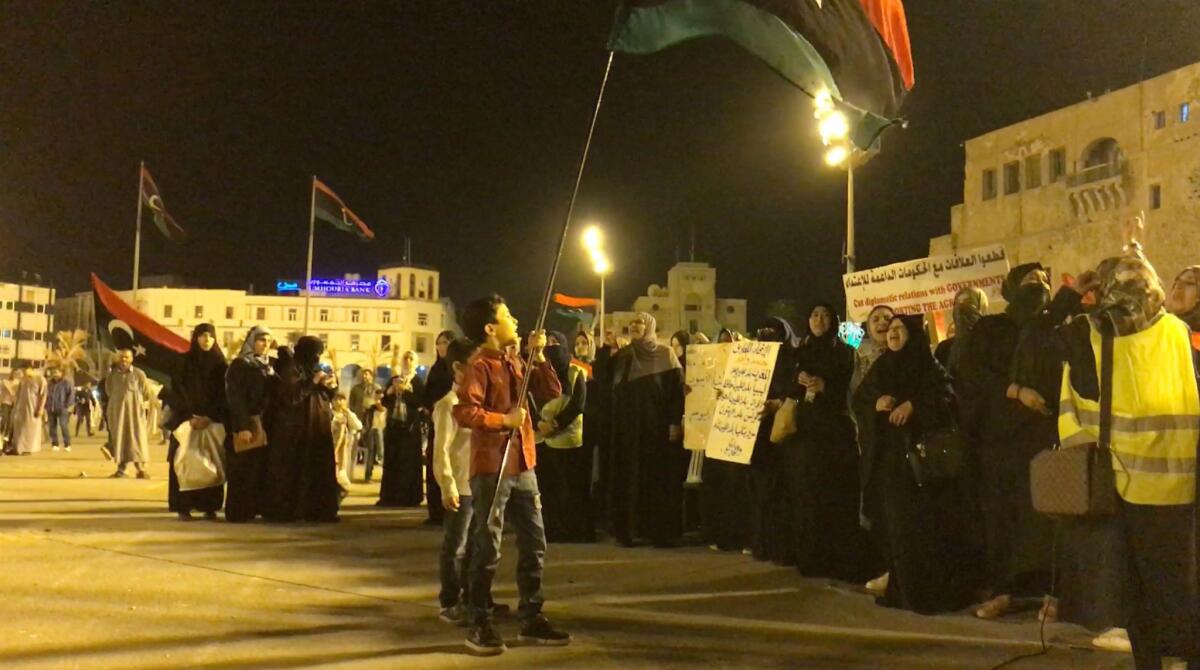
Instead, with Libya’s east and south already in his hands, Haftar, who once worked for longtime dictator Col. Moammar Kadafi and currently is allied to a rival government in eastern Libya, sought to claim the capital and consolidate power over the oil-rich North African country.
But what he promised would be a swift 48-hour blitz has stalled into a 50-day stalemate on the southern edge of Tripoli between Haftar’s forces and GNA-aligned armed factions from the country’s west.
The violence has pushed more than 75,000 Tripoli residents to abandon their homes, the U.N. says, with more than 500 killed and thousands wounded.
For weary residents of this city, it’s the latest in a series of convulsions disrupting their lives since the 2011 uprisings that ousted Kadafi and resulted in his death. And it’s especially bitter, because it came at a moment when politicians, with U.N. backing, seemed on the cusp of ending the country’s division.
There is little hope of that now.
Instead, Tripoli has turned into a battlefield of yet another proxy war in the region, pitting Haftar’s foreign backers — the United Arab Emirates, Saudi Arabia, France and Russia (with the U.S. hovering behind the scenes) — against the GNA and its allies in Turkey and Qatar.
The ongoing fighting “could lead to the permanent division of the country,” Ghassan Salame, the U.N.’s special envoy to Libya, said in remarks to the Security Council on Tuesday. “The damage already done will take years to mend, and that’s only if the war is ended now.”
“I am no Cassandra, but the violence on the outskirts of Tripoli is just the start of a long and bloody war on the southern shores of the Mediterranean, imperiling the security of Libya’s immediate neighbors and the wider Mediterranean region.”
Tripoli residents, meanwhile, try to ignore the bare-knuckled street battles raging just miles away.
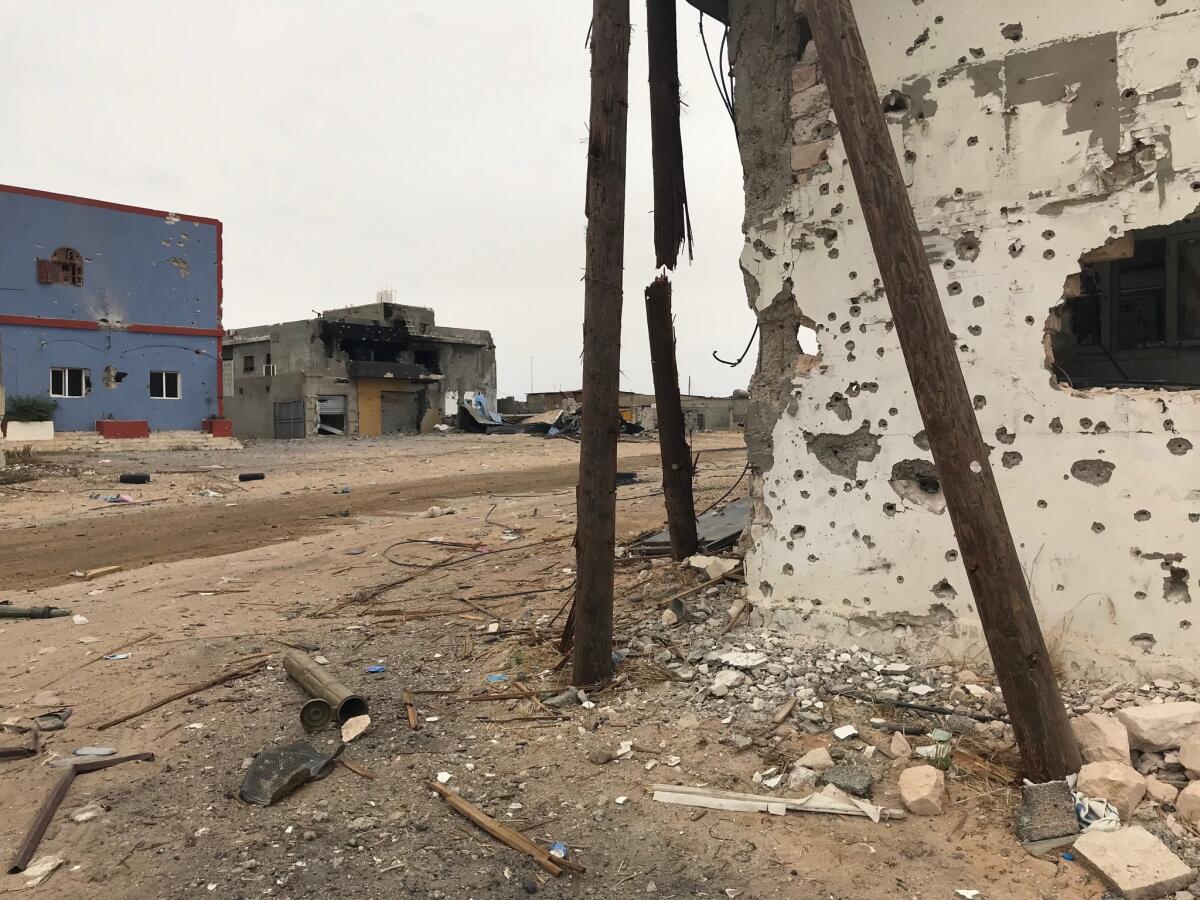
“The first days of the clashes the streets were empty. But now? Look around you,” said Abu Bakr Shibani, 38, a furniture maker sitting with his wife and two children in the Kabir garden, as he gestured toward the late-night crowd.
Shibani is from Abu Salim, a south Tripoli district that was shelled last month.
“This morning I heard another boom. We don’t know from where, we don’t know who fired it. It’s just something you don’t understand,” Shibani said. “We’re just trying to have a normal outing, and yet we have a war.”
In the upscale Andalus district, Usama Fergiani, owner of the famed Dar El-Fergiani bookstore, ushered out his last customers and began to lock up for the night at 2 a.m.
“We Libyans are used to these battles,” he said. “No fuel? No electricity? We have immunity to these things. The sound of bombs doesn’t terrify us like before.”
That attitude continues even closer to the front line.
“What you’re hearing now is far away, so it’s fine right now,” said Farid Baroni, 35, as the whine of a Grad rocket reverberated through Khillet al-Nour, where he runs a cigarette shop.
Baroni still comes to the store during the day, but moved his family closer to the center of Tripoli after a bullet smacked one of the outer gates of his home, adjacent to the business. He would soon join them for the night.
“There’s no one in the streets when it’s dark, of course,” he said, chuckling. “What am I going to do, sell a cigarette to the roaming street dogs?”
Haftar’s gambit has divided residents between those hoping he’ll bring an end to the post-revolution chaos, and those who fear in him the return of the military-style dictatorship they endured for 42 years under Kadafi.
The power vacuum in Kadafi’s wake turned Libya into a playground for armed factions, including Islamic State and Al Qaeda. Whether Islamist, tribal or simply criminal, various groups entrenched themselves in the workings of the state, acting as if government ministries and banks were their personal fiefdoms, kidnapping and extorting businessmen.
Haftar, who presents himself as a relentless anti-Islamist, claims he wants to save Tripoli from militias protecting Tripoli that he says are infested with extremists and terrorists.
There are those in Tripoli who would agree.
“We’re not optimistic about Haftar’s army, but at least it’ll be better than the guys we have here,” said Moammar Omar, a 48-year-old sales manager.
He took out his smartphone to show a visiting reporter a picture of Tripoli in the 1960s; it depicted elaborately decorated buildings built during the Italian colonial period standing near an organized seaside road.
“Tripoli was Dubai before there was Dubai,” he said, referring to the emirate whose glitzy boulevards and skyscrapers have become a symbol of progress for many in the region. “We’ve had these people in control of Tripoli for five years, and it’s still a mess.”
But others here insist there has been progress: Tripoli once had more than 140 militias. Most have since been sidelined; the once-routine appearance of unmarked cars, with de rigueur tinted windows and Kalashnikov-toting masked militiamen running gun battles, are now a rare sight.
Now only four armed factions remain in Tripoli. With the GNA, an interim government established to stem the chaos until elections could be held, having little control, the groups have formed a cartel of sorts that exerts control over the city.
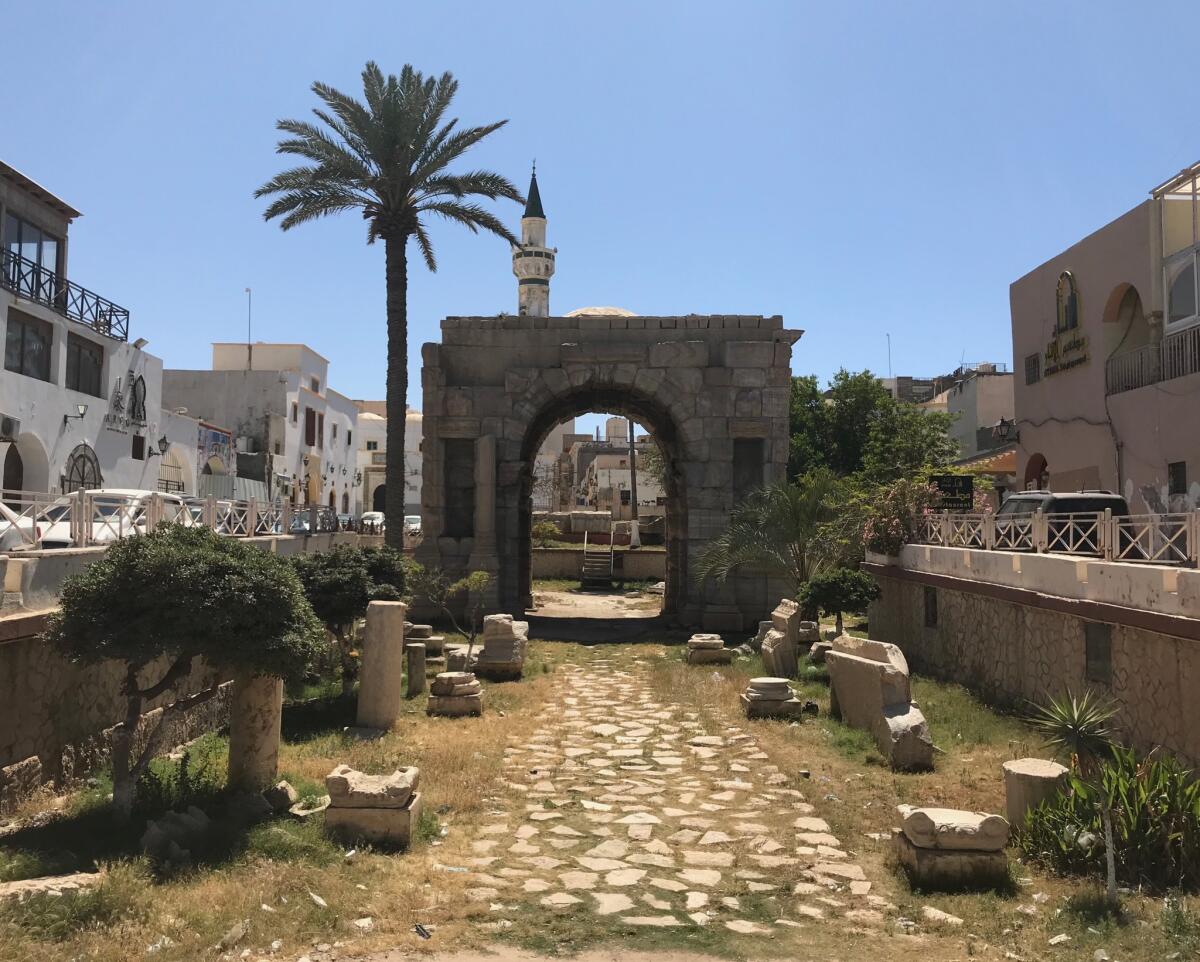
Even those are under increasing pressure from the GNA’s interior minister, Fathi Bashagha, to disband, and have purged their ranks of extremist elements, said Frederic Wehrey, a senior fellow at the Carnegie Endowment and author of the book “The Burning Shores: Inside the Battle for the New Libya,” in a phone interview Wednesday.
Haftar’s assault, Wehrey said, is likely to reverse that progress. “The irony is that with this conflict, the militias are back in business,” he said. “They can say ‘We’re defending Tripoli,’ and people like Bashagha are now in a difficult position because he needs these young kids to defend the capital, and it’ll be difficult to put them back in a box.”
Fighters and commanders aligned with the GNA reject Haftar labeling them as extremists.
“Haftar is a fool. We’re the ones who fought the terrorists in Surt,” said Maj. Gen. Ahmad Abu Shahmeh, overall commander of the government’s counteroffensive, referring to a 2016 GNA-led operation that removed Islamic State from its stronghold in that Libyan coastal city. “I was the leader of that operation. And most of the officers and soldiers with me now were part of it too. So is it possible now that we’re terrorists?”
International efforts to end the fighting have failed. On Wednesday, Haftar told French President Emmanuel Macron that the conditions for a cease-fire “were not met,” and that the GNA was “infested with militias,” according to an anonymous French official quoted by the Agence France-Presse wire service.
Serraj, speaking to Euronews television on Wednesday, also said there would be no cease-fire.
Whether the fighting stops or not is immaterial to Salah Sweissi, a police officer living less than 500 yards from the front line. No matter what happened, he said, he was staying put.
“I’m not going to leave my house and beg for help handouts,” he said. Behind him, his two children, 4-year-old Omar and Abdul Mueen, 3, played in his car.
“Where will I go? Be a refugee in my own country? I’d rather die here.”
More to Read
Start your day right
Sign up for Essential California for news, features and recommendations from the L.A. Times and beyond in your inbox six days a week.
You may occasionally receive promotional content from the Los Angeles Times.


